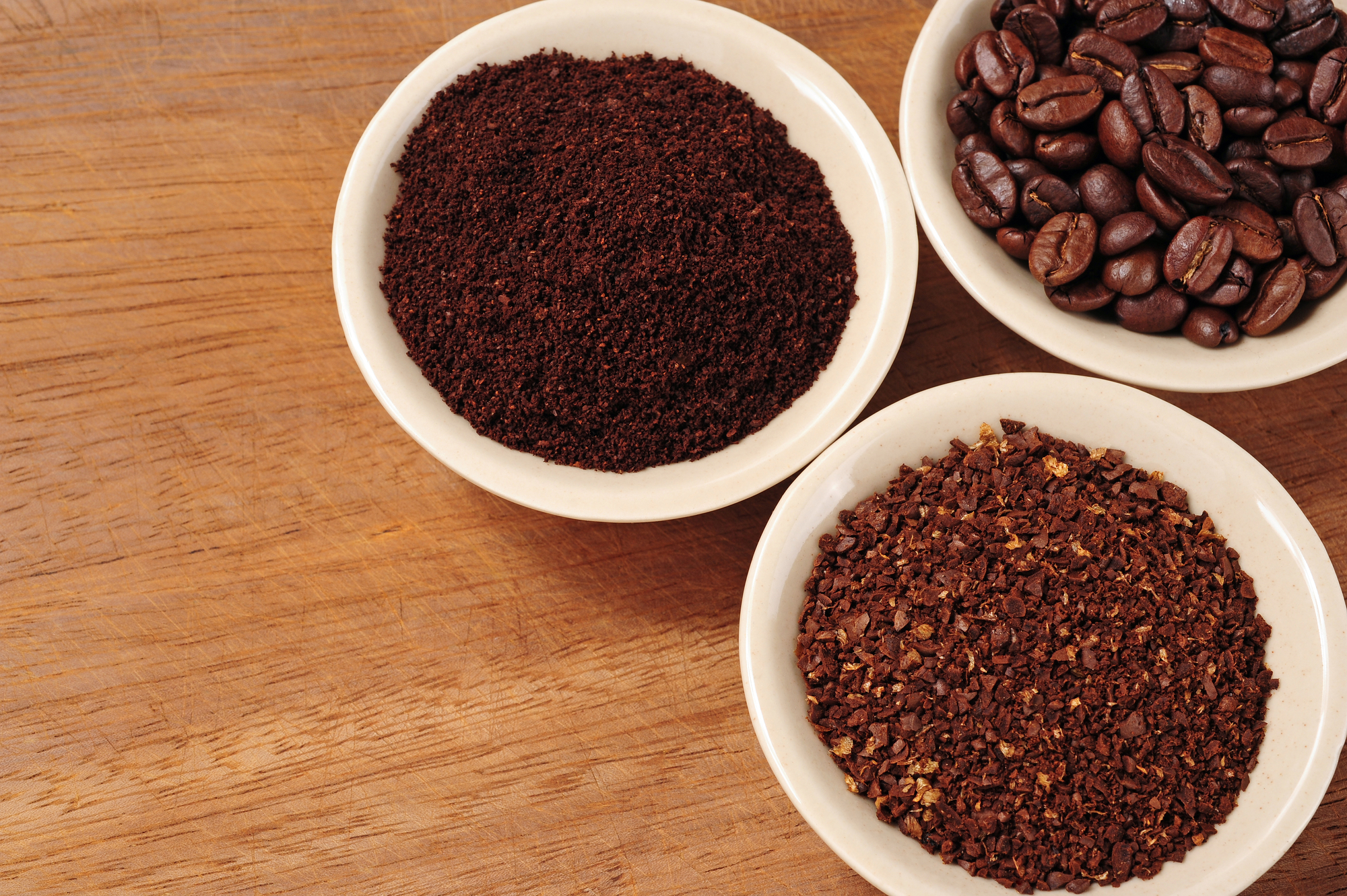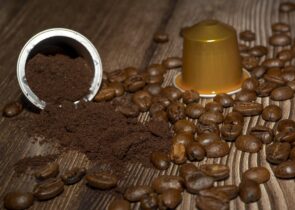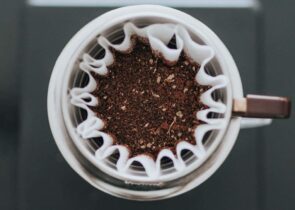So you sit down to your morning cup of coffee, deeply inhale the coffee aroma, and go in for a sip, only for it to taste… off. Is the taste strong and unpleasant or overly acidic? What happened, and what can you do about it?
If you have sour or bitter coffee, what can you do to fix it? Read on to learn more about the difference between bitter vs sour coffee taste, what causes it, and what steps you can take to make your coffee taste better next time!

Bitter and Sour Coffee: What’s the Difference?
So you know that your coffee tastes not great. But how do you describe the taste exactly? Is it sour or bitter, and what’s the difference between them?
Sourness is, essentially, the sensation we get when our taste buds detect acidity. It’s the taste you would get if you bite into a citrus fruit or taste vinegar.
Bitterness is not acidic; it’s often described as sharp and unpleasant. We likely developed a sensitivity to bitterness as a protective measure against toxic substances and plants that we may encounter in nature.
Bitter Coffee
Bitter is a flavor sensation that’s difficult to describe, but you know it when you taste it. It cuts through your tastebuds and leaves you wrinkling up your face in disgust. Unsweetened cocoa and citrus peel are a couple of common examples of bitter flavors.
If your coffee is overly bitter, no amount of creamer or sugar can save it. You may even think the coffee itself has gone bad. Here’s how to recognize an overly bitter cup of coffee and avoid it in the future.
What Causes Bitter Coffee?
Bitterness in your coffee is generally caused by incorrectly roasted coffee beans and the coffee brewing method you choose, but several factors will affect your coffee’s taste. Here are a few of the most common causes you may encounter:
- The way coffee is brewed can also affect the taste. Brewing methods that steep the coffee in hot water for longer, like French press methods, can cause coffee to taste more bitter than drip or pour-over methods. This is usually due to over-extraction of the beans, either by water that’s too hot or a brewing time that’s too long.
- Another common cause of bitterness is improper storage. If coffee beans are stored in a warm, humid environment, they will start to deteriorate and taste bitter. Coffee beans should always be stored in a cool, dry place, away from direct light and moisture.
- Roasted coffee beans contain compounds like chlorogenic acid that can be released during the brewing process, especially during prolonged brewing, which can cause your coffee to taste bitter. To avoid this, use brewing methods that give you more control over the brewing time, like French press, and be sure to brew until the coffee is just at the strength you want it, but not too much.
How to Avoid Bitter Coffee:
- Brew your coffee for a shorter time: over-extracted coffee is usually the main culprit in bitter coffee, so don’t let your coffee grounds sit in hot water for too long.
- Grind your coffee beans coarser and consider getting a burr grinder rather than a blade grinder, so you have more control over the grind size.
- Use filtered water to cut down on the bitter taste: tap water can often contain minerals that will affect the taste of your coffee. Use bottled or filtered water, especially with a drip coffee maker, to avoid causing mineral buildups in the machine.
Sour Coffee
Where bitter coffee might taste sharp and pungent, a sour taste is a sign of acidity in coffee. All coffee is acidic; according to Healthline, there are nine major acids in coffee: chlorogenic, palmitic, citric, lactic, acetic, malic, phosphoric, linoleic, and quinic. But your coffee shouldn’t taste sour when the beans are roasted and these acids are correctly extracted during the coffee brewing process.
What Causes Sour Coffee?
A little bit of sourness in your coffee can help brighten it up and help create a balanced, complete taste, but too much can overwhelm the coffee and make it undrinkable. Here are just a few reasons that your coffee can taste sour:
- The fresh coffee has been exposed to air and has begun to oxidize – When coffee oxidizes, it produces a compound called acetic acid, which gives sour-tasting coffee its taste. This usually happens if the coffee is not stored in an airtight container or if the grounds are set out in the open for too long before brewing.
- The water used to brew the coffee was not hot enough – If the water isn’t hot enough, it can’t extract all of the flavor profile from the beans, which will give the under-extracted coffee a sour taste. The National Coffee Association recommends heating your water to the ideal coffee brewing temperature between 195 and 205 degrees Fahrenheit.
- Bacterial growth is affecting your coffee – If the water used to make coffee is not clean, it can introduce bacteria into the brew that will cause it to spoil. You should also ensure that your coffee maker is regularly cleaned and dried in between brewings.
- Over-roasting beans can also cause mouth-puckering sour coffee. When beans are roasted too dark, they can often taste bitter, but sometimes they will begin to produce acetic acid as they age, which will instead produce a sour taste.
- Your coffee beans are too old – Roasted coffee beans usually last about 6-9 months after being sealed by the manufacturer, so if you store them for much longer, you might start to notice a sharp, sour, lemony flavor in your coffee.
How to Avoid Sour Coffee:
- Use milk and sugar: This may be the easiest and most obvious fix. Unlike bitter coffee, the creaminess and sweetness of milk and sugar may be enough to counteract the sour taste in your coffee.
- Use darker roasts: Since light roasts preserve the natural acid content of the coffee, go for a medium or dark roast coffee to avoid an overly sour taste.
- Brew with hotter water: increasing the temperature may be enough to release the natural acids in the coffee grinds, so you get a perfect balance of flavor.
Naturally Sour and Bitter Coffee Beans
Of course, sometimes, the beans you choose give you a higher chance of producing sour or bitter coffee before the brewing method or extraction even plays a part. Robusta beans, for example, tend to taste more bitter than Arabica. On the other hand, you may taste more bitterness with Arabica beans, but the problem is usually a symptom of over-extracted coffee, not the beans themselves.
Check the Roast Level
The roast level also plays a big part in the coffee’s taste. Light roast levels, especially Blonde roasts, are somewhat notorious for producing a sour brew since light roasts better preserve the acids that naturally grow in the coffee beans. Dark-roasted coffees tend to have less acidity and taste a bit more bitter.
Was it Meant to Be Sour?
There’s also the fact that many coffee roasts and varieties are explicitly made to taste more sour or bitter than you might expect. For example, so-called “third-wave” espresso blends are often roasted light to ensure a sour taste, whereas African coffee beans often have a bright acidity.
If you’re sure that your brew temperature and time are correct, you’ve got the right grind size, and you’re using fresh beans, then you may have just bought a variety that was made specifically with a more sour or bitter taste in mind.
Remember: Coffee Taste is Subjective
Remember that no cup of coffee will taste the same to everyone. You may even prefer a slightly bitter or sour taste to your daily coffee, and that’s okay! It takes a bit of experimentation and experience to learn what you like so that you can brew yourself a perfect cup every time.
Experiment with grind size, brew time, and water temperature to find the coffee’s brewing sweet spot. You should also be careful to have the correct coffee-to-water ratio since too much water can turn your coffee sour.
Final Thoughts
It can be frustrating to figure out exactly what has gone wrong if you’re suddenly experiencing overly bitter flavors or sour coffee, especially since there can be various causes. But once you figure out why the coffee doesn’t taste how it should, you can take steps to get a better cup of delicious coffee moving forward.
Want to learn more about how you can improve the taste of your coffee? Read up about some of the least bitter coffee options and what to do if your coffee has gone bad.
Happy Caffeinating!







